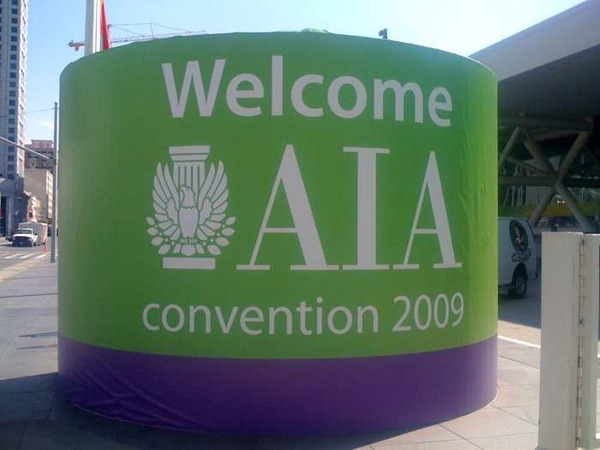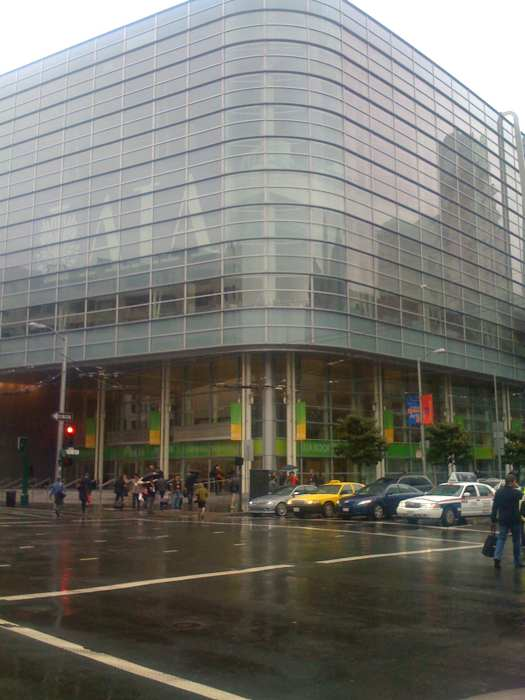
Image of courtesy of Neal Pann, AIA
Now that a few days have passed since the AIA (American Institute of Architects) Convention in San Francisco, I've had some time to reflect on the event. Although it was an overall good experience, I, being an architect, can't help but be critical and look for areas for improvement:
1. Less Architect Speakers
The best seminars I attended were by non-architects, or architects that have broken out of the traditional architecture role. As a profession, we're pretty insulated. As I've said before, outsiders to the architecture profession have much to teach us.
2. No Convention Center
Convention Centers are massive flexible spaces that can decently accommodate just about anything. Unfortunately, this great flexibility in uses means that every use is compromised. Lecture/seminar rooms have bad acoustics, viewing angles, seating and are just unappealing overall.The expo floor, full of companies pushing "green" products and materials, is in a huge air conditioned and artificially-lit space that smells of carpet off-gassing.
I suggest utilizing college campuses in their off-seasons: real lecture halls, the (outdoor) quad for the expo, plenty of restaurants and bars, and best of all, college atmosphere.

Moscone West Convention Hall. Image of courtesy of Neal Pann, AIA
3. Repeat Seminars
Rumors of which seminars and events were the best spread quickly by word of mouth, text message, and Internet blogs. I heard of several seminars on Thursday that I would've attended on Friday, but they were only given once. The AIA could even encourage this with a website or promo of Twitter (see #5 below) for instant feedback or a vote on which seminars should repeat.
4. Empower the Youth
The conference attendance was light on professionals in their 20's and 30's. My partners and I fall into this category and this was our first real convention. I suggest the AIA drastically reduce the cost for professionals under 35. This would encourage firms to send their youth in addition to sending older firm principals. These future leaders have the power to bring positive changes to their respective firms and the industry as a whole. Chances are they will also get the convention bug and continue to attend even when the price increases.
5. Social Networking
I provided updates of my #aia2009 convention experience on Twitter to those who cared to follow. There were others doing this as well, but not many. I enjoyed sharing experiences this way with other attendees as well as those who couldn't attend, following along from home. This is great publicity for the convention. I hope architects and the AIA step up the social networking attendance at next years convention.
I'm sure there is no shortage of opinions on the AIA and other professional conventions. Share away.







